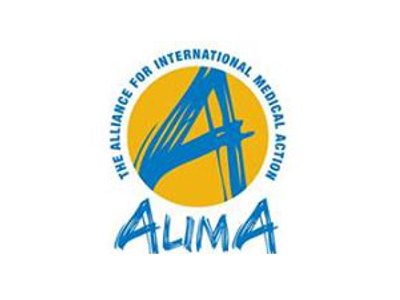SRH Activity Manager – Nigeria – M/F
ALIMA’S SPIRIT: ALIMA’s purpose is to save lives and provide care for the most vulnerable populations, without any discrimination based on identity, religion or politics, through actions based on proximity, innovation, and the alliance of organizations and individuals. We act with humanity and impartiality in accordance with universal medical ethics. To gain access to patients, we undertake to act in a neutral and independent manner.
Our CHARTER defines the VALUES and PRINCIPLES of our action:
- Putting the Patient First
- Revolutionizing humanitarian medicine
- Responsibility and freedom
- Improve the quality of our actions
- Placing trust
- Collective intelligence
« ALIMA promotes and defends the principles of fundamental human rights. ALIMA has a zero-tolerance approach towards those guilty of acts of gender and sexual violence as well as towards inaction in the face of alleged or proven acts of violence. The protection of those benefiting from and impacted by our intervention is our top priority in everything we do. Everyone collaborating with ALIMA is committed to
Respect the charter, the code of conduct, the institutional policies including the policy of protection against abuse of power and sexist and sexual violence, the policy of prevention of corruption and fraud;
Report any violation of the policies, framework documents and procedures to a superior, to a referent or to “alert@alima.ngo”
CARING – INNOVATING – TOGETHER:
Since its creation in 2009, ALIMA has treated more than 4 million patients and today deploys its operations in 11 African countries. In 2018 we developed 41 humanitarian medical response projects to meet the needs of populations affected by conflicts, epidemics and extreme poverty. All of these projects are carried out in support to national authorities through nearly 330 health facilities (including 28 hospitals and 300 health facilities). Whenever possible We work in partnership with local NGO’s to ensure that our patients benefit from the best and most relevant expertise wherever it is, whether within their own country or in the rest of the world. In addition, to improve the humanitarian response, we are carrying out operational and clinical research projects particularly in the field of the fight against malnutrition and viral hemorrhagic fevers
ALIMA’S TEAM: more than 2000 people are currently working for ALIMA. The field teams, closest to the patients, receive their support from coordination teams generally based in the countries’ capitals. These receive support from the 4 desk teams and the emergency and opening team based at the operational headquarters in Dakar, Senegal. The Paris and New York teams are actively working to raise funds and represent ALIMA. The rest of the ALIMA Galaxy includes individuals and partner teams working on behalf of other organizations such as medical NGOs BEFEN, ALERT Health, SOS Doctors / KEOOGO, AMCP, research organizations PACCI and INSERM, Bordeaux or Copenhagen Universities, the INGO Solidarités International and many others.
COUNTRIES WHERE WE WORK: Mali, Burkina Faso, Central African Republic, Nigeria, Niger, Chad, Democratic Republic of Congo, Cameroon, Guinea, South Sudan, Mauritania.
THE WORK WE DO covers: Malnutrition, Maternal Health, Primary Health, Pediatrics, Malaria, Epidemics (Ebola, Cholera, Measles, Dengue, Lassa Fever), Hospitalization, Emergencies, Gender Based Violence, Opening / Closing.
CONTEXT
The humanitarian crisis in Nigeria’s northeast and the Lake Chad region is one of the most severe ongoing crises in the world, now entering in its ninth year and shows no sign of abating. In 2018, at least 7.7 million people are in need of humanitarian assistance in the worst affected states of Borno, Adamawa and Yobe, while more than 1.6 million people remained internally displaced in these three states in November 2017. 86% of internally displaced persons (IDPs) do not believe that the current context allows for a safe and dignified return, and nearly 1 in 4 IDPs have expressed their intent to settle in their current place of displacement instead of returning (OCHA HRP 2018).
An estimated 440,000 children under the age of 5 are malnourished across the 3 most-affected States (HRP, February 2018), while 47% of them are in Borno State (207,521 SAM children, HPC Nutrition Figures, November 2017). Furthermore, The Nigerian Cadre Harmonisé (November 2017) states that in Borno State alone 1,575,414 individuals were facing critical food insecurity. The Maiduguri Metropolitan Center (MC) and Jere Local Government Authority (LGA) are still categorized as “in food crisis” by the IPC (Integrated Food Security Phase Classification).
In 2017, ALIMA continued to implement projects in Muna Garage in Jere LGA, where ALIMA performs general consultations for children under 5 and provides Sexual and Reproductive Health (SRH) to pregnant and lactating women (antenatal and postnatal consultations). ALIMA partners with UNFPA to manage victims of sexual and gender-based violence (SGBV). An Outpatient Therapeutic Feeding Program (OTP) is also available for children under 5 suffering from severe acute malnutrition (SAM) in the clinic, where women and caretakers are trained to screen their children for malnutrition using the MUAC tape.
In Maiduguri MC, where ALIMA is working in partnership with the University of Maiduguri Teaching Hospital (UMTH), the Inpatient Therapeutic Feeding Center (ITFC) manages children under 5 suffering from SAM with medical complications in a 30-bed capacity building.
In the same way, ALIMA has continued working in Monguno in 2017 in 5 IDP camps (GGSS, GSSS, GDSS, Kuya, and Waterboard), in local host communities (Gana Ali, Abari, Bakassi) and in the Maternal and Child Health Center (MCH). In Monguno, ALIMA was the lead agency for the nutrition sector. In the IDP camps and in the host communities, ALIMA delivers primary health care and OTP to children under 5. In the MCH, ALIMA provides sexual and reproductive care including Basic Emergency Obstetric and Newborn care. Based in Monguno, a rapid response team conducted an emergency intervention in Baga and Doro towns (Kukawa LGA) in November 2017 to provide emergency OPD, OTP and SRH in 2 sites. The emergency team also responded to cholera outbreak from August to November 2017 in Maiduguri and Monguno, joining its efforts and coordinating its actions with the State Ministry of Health and partners
In January 2018, ALIMA in partnership with Borno state government via ministry of rehabilitation, Ministry of Health and Hospital management board start the 3 years early recovery project funded by DEU and will be implemented in 4 LGA, Askira-Uba, Hawul, Ngala and Monguno focusing on strenghness of health staff capacity and rehabilitation of hospital and PHC.
ALIMA’s teams in Nigeria represents 324 National staff and 15 expatriates.
POST TYPOLOGY
Mission Location: Nigeria, Maiduguri and Jere
Management lines:
- He/She reports to the project medical referent
- He/She supervises the national midwives and other member of SRH team
- He/She collaborates with others services (OPD/OTP/ITFC/outreach/epidemic surveillance) and department (Logistic & Administration)
MISSION AND MAIN ACTIVITIES
- To ensure the proper functioning of the reproductive health activities under his/her responsibility in Maiduguri project where ALIMA is running health and nutrition activities. Defining and implementing universal protocols and procedures; guaranteeing the quality of healthcare in order to improve health conditions of the target population
- The SRH activities manager will assist the SRH team to set up, follow SOPs in all units, and follow universal standard precautions during and after procedures for effective infection control. The manager will assist the team to reduce maternal and neonatal morbidity and mortality in Monguno; this will be achieved by involving the community and the project TBAs network to increase the awareness of good health care practices for our beneficiaries.
Major Responsibilities:
- Harmonize the sexual reproductive health (SRH) services operation in line with national/ WHO guidelines
- Organize and ensure supervision of SRH activities i.e. antenatal and postnatal care, family planning, BEmONC, management of victims of gender base and sexual violence, female genital mutilation and in close collaboration with other medical staff.
- Ensures that all pregnant women and newborn children are immunized according to national guidelines. Collaborate with the field doctors when required (normal or complicated deliveries, SV cases, etc.).
- Ensures the patients (especially newborn babies) are followed up correctly since delivery and until discharge.
- Ensure and supervise the respect of protocols by all staff under he/her supervision, in order to guarantee/improve the quality of.
- In coordination with the project biomedical service supervising the appropriate use of medical devices and anticipating and communicating future needs.
- Plan and supervise the processes associated to HR and team management (recruitment, develop staff Job descriptions, staff performance evaluation, motivation, internal/ external communication, etc.) of the SRH staff in the project, in order the appropriate team size, capabilities and skills, and enhance the health promotion and disease prevention.
- Participate in the definition and update of annual project planning and budget, as well as participate in any emergency activity or exploratory visit in or out of the project area if needed, in order to keep control of activities and projects while adapting the humanitarian assistance given to the population according to the changing conditions and context.
- Analyze routine data and supervise quality service provision. Is responsible for the reporting of SRH activities (collection and analysis of medical statistics), and participates in the epidemiological reports related to health facilities in the project area and in the monthly reports according to guidelines. Supervise the proper distribution of drugs and use of material, keeping track of consumption patterns and supply orders, and monitoring inventories, together with the project pharmacy manager, in order to ensure having minimum levels of stock to carry out the project and a rational and appropriate use of materials.
- Build capacity of all SRH staff on overall management and day to day management and supervision of SRH activities
- Organize training and update project staff on women health
- Organize a network of Traditional Medical Attendants (TBA) for pregnant women and SGBV sensitization
- Ensure the coaching of the national midwife supervisor


